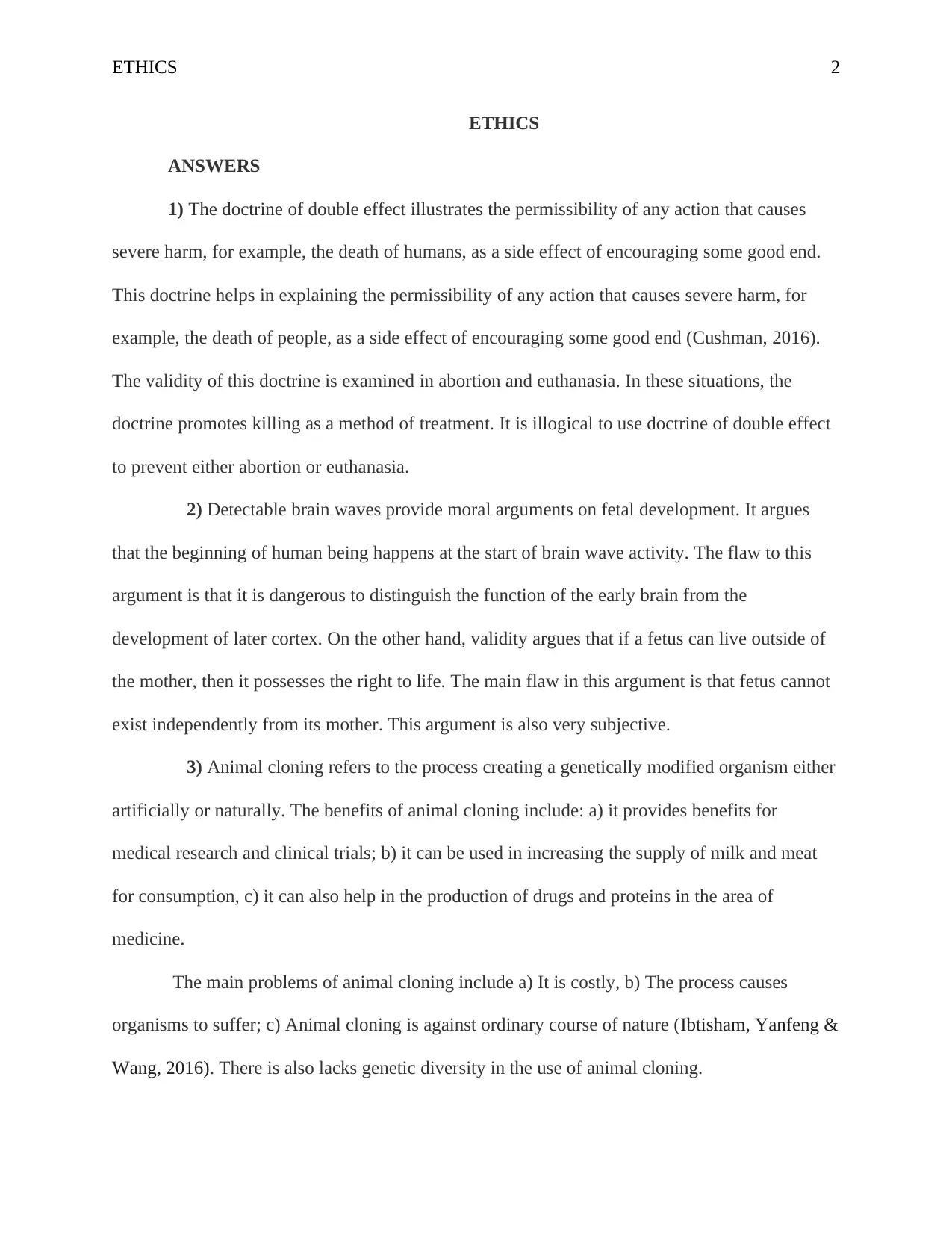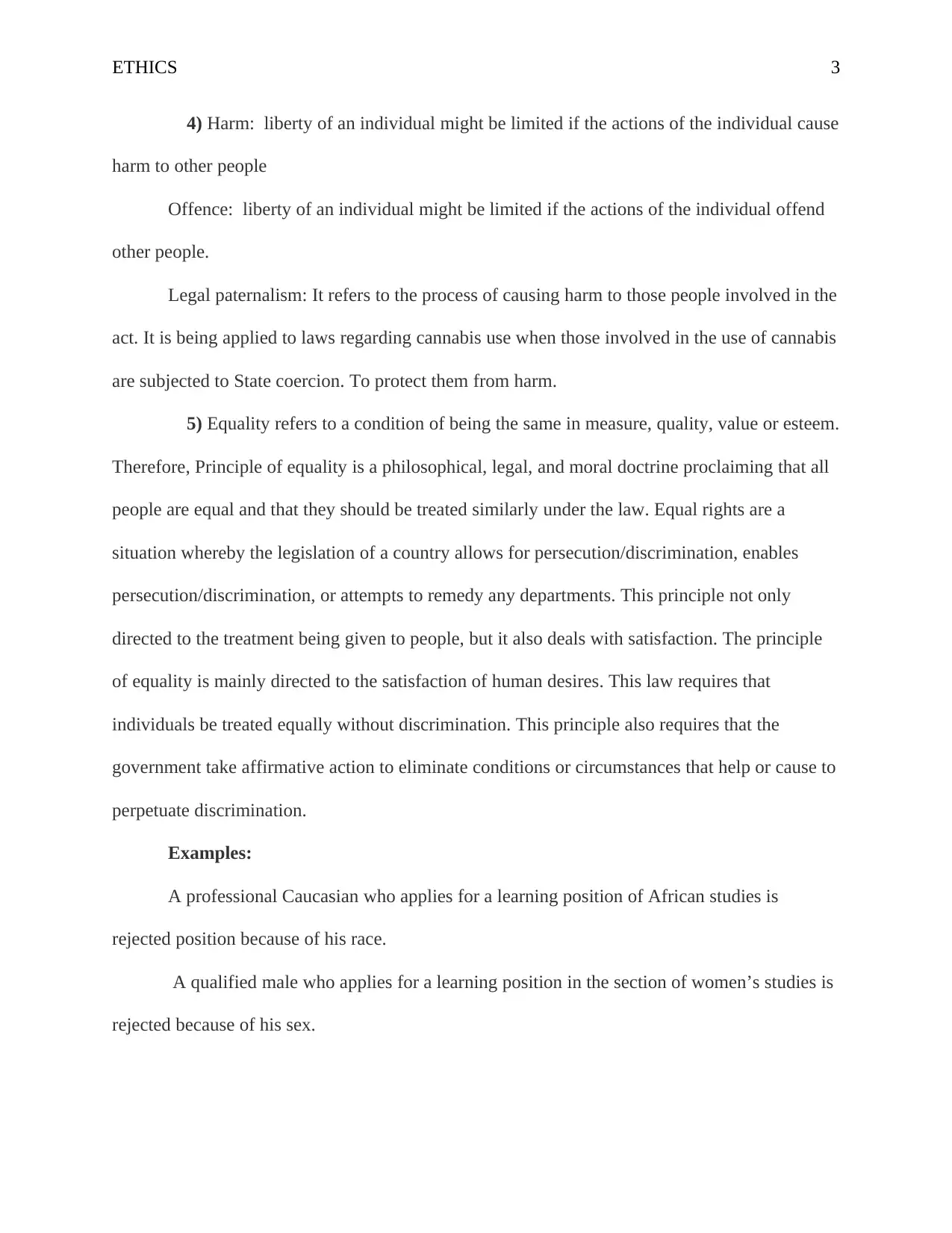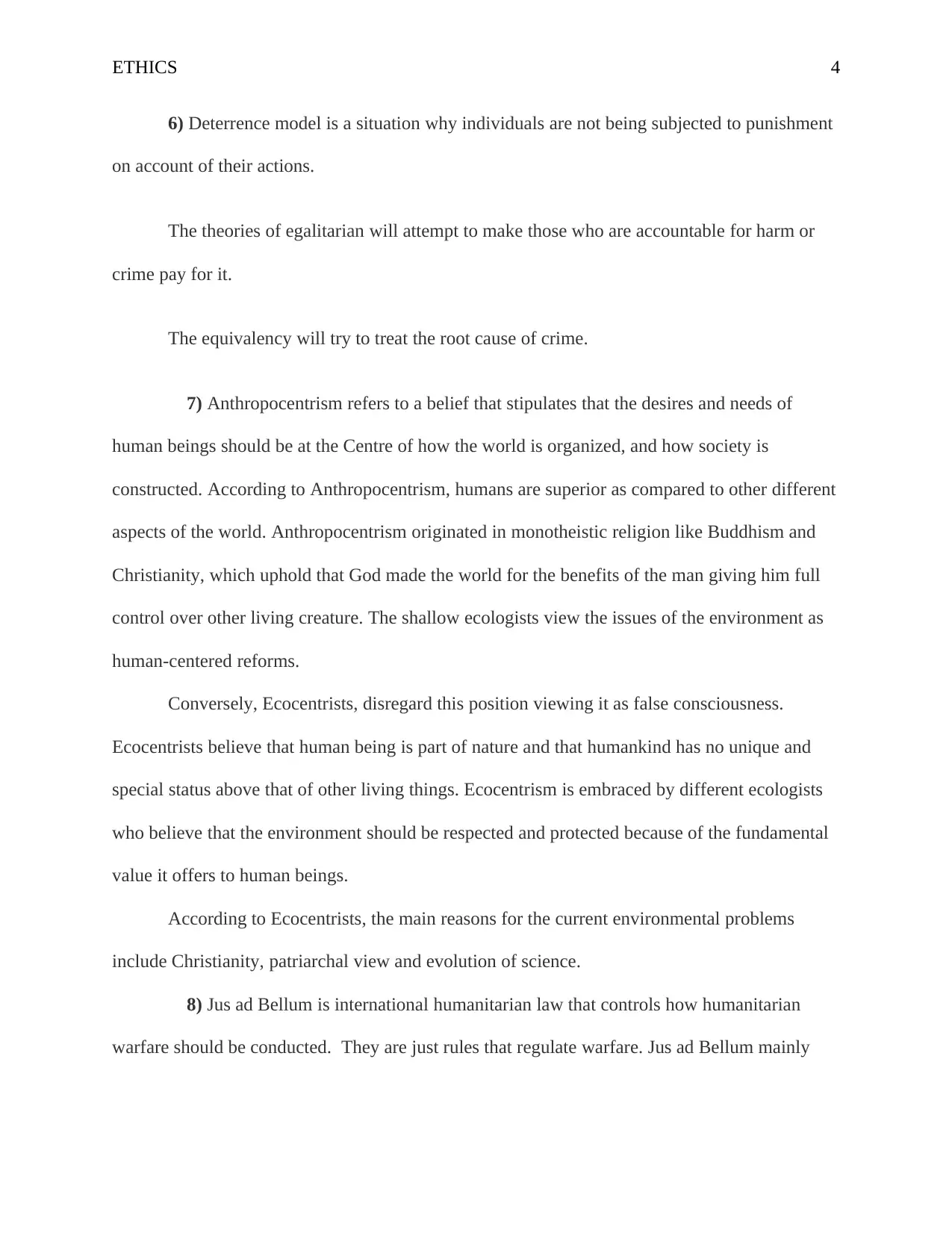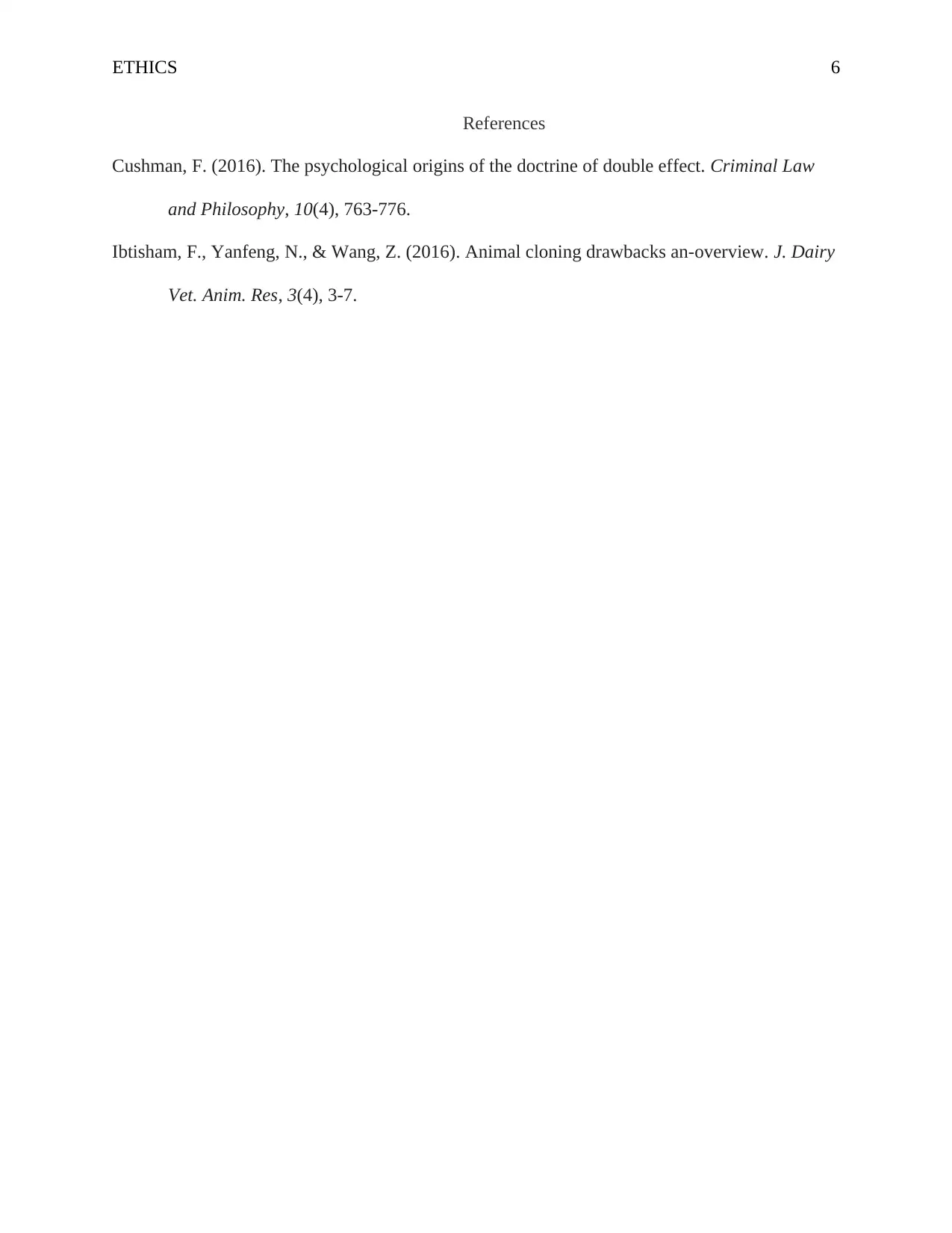Ethics Assignment: Exploring Ethical Dilemmas and Principles
VerifiedAdded on 2023/01/16
|6
|1030
|57
Essay
AI Summary
This essay explores several key ethical concepts and dilemmas. It begins by examining the doctrine of double effect and its implications for actions that cause harm as a side effect of achieving a good outcome, with specific attention to abortion and euthanasia. The assignment then analyzes moral arguments related to fetal development, including the role of brain waves and the viability of a fetus outside the mother. The benefits and problems of animal cloning are also discussed, along with the ethical issues involved. Furthermore, the assignment delves into the concepts of harm, offense, and legal paternalism, and examines the principle of equality, including its application in law and its role in addressing discrimination. It also covers the deterrence model and theories of egalitarianism, and contrasts anthropocentrism and ecocentrism in relation to environmental ethics. Finally, the essay touches upon Jus ad Bellum and factors contributing to wealth disparities.
1 out of 6







![[object Object]](/_next/static/media/star-bottom.7253800d.svg)